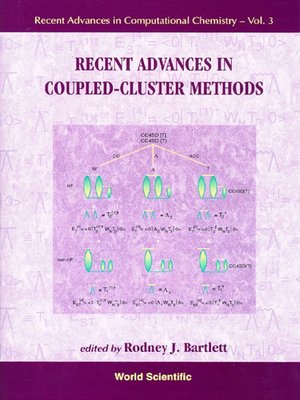Recent Advances In Coupled-cluster Methods
ebook ∣ Recent Advances In Computational Chemistry
By Rodney J Bartlett

Sign up to save your library
With an OverDrive account, you can save your favorite libraries for at-a-glance information about availability. Find out more about OverDrive accounts.
Find this title in Libby, the library reading app by OverDrive.



Search for a digital library with this title
Title found at these libraries:
| Library Name | Distance |
|---|---|
| Loading... |
Today, coupled-cluster (CC) theory has emerged as the most accurate, widely applicable approach for the correlation problem in molecules. Furthermore, the correct scaling of the energy and wavefunction with size (i.e. extensivity) recommends it for studies of polymers and crystals as well as molecules. CC methods have also paid dividends for nuclei, and for certain strongly correlated systems of interest in field theory.In order for CC methods to have achieved this distinction, it has been necessary to formulate new, theoretical approaches for the treatment of a variety of essential quantities. These include properties and, particularly, analytical first derivatives (gradients) that readily provide the forces on the atoms in a molecule to facilitate searching potential energy surfaces for structures and transition states; second derivatives (Hessians) which indicate the type of extremum point and provide vibrational frequencies and intensities; excited, ionized, and electron attached states including their properties; multi-configurational reference functions to add important non-dynamic correlation; and relativistic effects.This book addresses very recent work in each of the above topics in ten chapters written by leading experts in molecular CC theory. This is NOT a collection of reviews, but is, instead, forefront research explained in an unusually clear exposition. Each chapter presents new results and formulations that offer another step toward providing the next generation of powerful CC solutions.The gap that often exists between text books and research can be more of a chasm in highly technical fields like CC theory, but this volume helps to fill the void, as it provides a sequel to a graduate level course in CC theory and many-electron methods. Essentially all current directions for new research are well represented in the authoritative articles.







